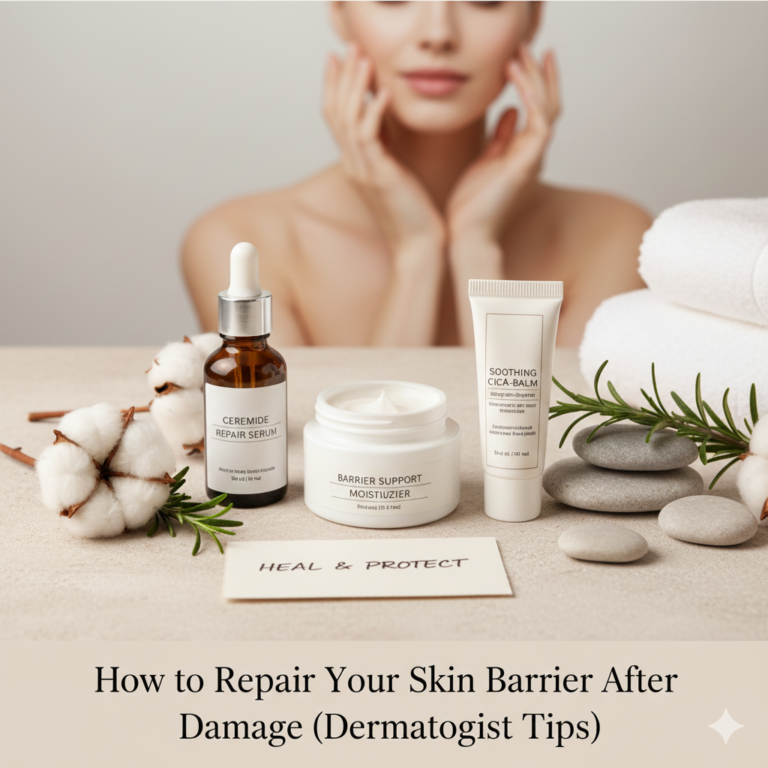Do You Really Need an Eye Cream? What Science Says
Eye creams have long held a prized spot in skincare routines. With promises to erase dark circles, reduce puffiness, and turn back the clock on fine lines, they’re often marketed as essential. But is an eye cream truly necessary—or just a cleverly packaged moisturizer?
In this article, we’ll break down the science behind eye creams, what dermatologists recommend, and how to decide if you really need one. We’ll also discuss key ingredients, common misconceptions, and how to integrate under-eye care effectively into your routine.
Why the Eye Area Is Unique
The skin under your eyes is thinner and more delicate than the rest of your face. This makes it more prone to:
- Dehydration
- Fine lines and wrinkles
- Dark circles
- Puffiness
Because this area has fewer oil glands and less collagen support, it tends to show signs of aging earlier. That’s why many people look to eye creams for a targeted solution.
But here’s the truth: not everyone needs a separate eye cream.
What Eye Creams Actually Do
Despite the marketing hype, eye creams are usually moisturizers formulated for the delicate eye area, often with added ingredients designed to:
- Hydrate and plump the skin
- Reduce the appearance of fine lines
- Brighten dark under-eye circles
- Decrease puffiness
However, many of the active ingredients found in eye creams—like hyaluronic acid, peptides, niacinamide, caffeine, and retinol—can also be found in good-quality facial moisturizers or serums.
If you’re using a well-formulated face product that’s gentle and fragrance-free, it may already be safe for the under-eye area.
Dermatologist Perspectives: Necessary or Not?
Dermatologists are divided, but most agree on one thing: eye creams are not mandatory.
You May Not Need an Eye Cream If:
- Your facial moisturizer is gentle and hydrating enough for the under-eye area
- You’re under 30 with no specific concerns like dark circles or puffiness
- You’re following a consistent skincare routine with sun protection
You Might Benefit from an Eye Cream If:
- You have visible under-eye concerns (e.g., chronic puffiness, hereditary dark circles)
- You use actives (like retinol) on your face that are too strong for the eye area
- Your skin is extremely dry or sensitive around the eyes
- You want to target crow’s feet or early signs of aging
Key Ingredients to Look For in Eye Creams
If you do choose to use an eye cream, here are science-backed ingredients that offer real benefits:
- Caffeine – Temporarily reduces puffiness by constricting blood vessels
- Peptides – Stimulate collagen and improve skin texture
- Hyaluronic Acid – Deep hydration and plumping
- Niacinamide – Brightens skin and supports the skin barrier
- Retinol (in lower concentrations) – Stimulates cell turnover and reduces fine lines
- Ceramides – Restore moisture and protect the skin barrier
Choose fragrance-free formulas to avoid irritation, especially if you wear contact lenses or have sensitive skin.
Ingredients to Avoid Around the Eyes
- Fragrance/parfum – Often irritating
- Strong acids (e.g., glycolic, salicylic) – Too harsh for delicate skin
- High concentrations of alcohol – Drying and disruptive to the skin barrier
- Essential oils – Can cause allergic reactions or irritation
Application Tips: Less Is More
How you apply your eye cream matters just as much as what’s inside it:
- Use a rice-grain-sized amount for both eyes.
- Apply with your ring finger, which uses the least pressure.
- Tap gently from the inner corner outward, avoiding rubbing.
- Let it absorb fully before applying concealer or makeup.
Over-application or heavy rubbing can cause irritation or contribute to milia (tiny white bumps).
Can You Use a Regular Moisturizer Instead?
Yes—if it’s gentle and fragrance-free, a high-quality face moisturizer can be applied around the eyes. Many modern moisturizers include ingredients like peptides, ceramides, or hyaluronic acid that are safe and effective for under-eye use.
Check out our guide on how to choose a moisturizer based on your skin type for tips on finding the right formula.
Common Myths About Eye Cream
Myth 1: Eye cream can permanently remove dark circles.
Truth: Most dark circles are caused by genetics or blood vessels, which eye creams can’t fix permanently.
Myth 2: You must start using eye cream in your 20s.
Truth: Prevention is helpful, but it’s not mandatory unless you have specific concerns.
Myth 3: More expensive eye creams work better.
Truth: Price doesn’t always reflect effectiveness. Ingredients and formulation matter most.
Recommended Eye Creams (2025 Update)
Here are a few dermatologist-recommended products that are effective and budget-conscious:
- The Inkey List Caffeine Eye Cream – De-puffing and affordable
- CeraVe Eye Repair Cream – Hydrating with ceramides and niacinamide
- La Roche-Posay Redermic R Eyes – Gentle retinol for fine lines
- Neutrogena Hydro Boost Eye Gel-Cream – Lightweight and cooling
Conclusion
Do you really need an eye cream? The answer depends on your skin type, concerns, and routine. While not strictly necessary, a well-formulated eye cream can offer benefits for hydration, puffiness, and fine lines. But don’t be afraid to skip it—your existing skincare may already be doing the job.
Consistency, sun protection, and gentle treatment around the eyes are more important than the product label.
Internal Links:
- How to Choose the Right Moisturizer for Oily Skin
- Best Moisturizers for Sensitive Skin
- Anti-Aging Skincare Tips That Actually Work
- How to Layer Skincare Products Correctly



